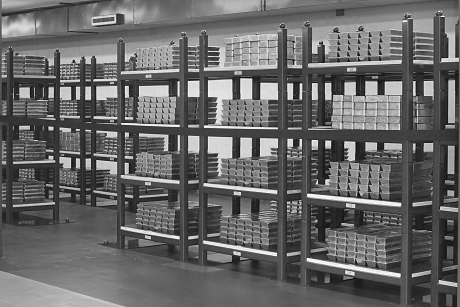What motivates you to study economic history?
During my undergraduate economics degree I took a course in economic history. Simply put, I found this approach much more fun. It made me realize that this was what I had truly come to study. And this eventually just snowballed into a PhD. Economists have the tendency to start with a theory, and then do some more theory, leaving the vast back catalogue of actual economic events and trends by the way side. Economic history takes a very different approach. It typically starts with the facts of actual historical events, and only then works towards explaining these with relevant theory.
What drove you to approach this research topic?
The Great Depression is quite a saturated research topic, so why would I choose to look at it again? The problem is that the body of research of this subject has been overlooking countries like the Netherlands. The big countries like the US and the UK have really been the focal point of academic discussion about the interwar years. So why has the Netherlands been overlooked? Is there just nothing worth telling about their economic history? The truth is, that since the early 1990s the analysis of the Dutch interwar economy has stagnated. The general interest in Dutch economic history is much more drawn to when the Dutch were a global superpower, to the Golden Age. Yet, the methods, and availability of sources, have moved on since the 1990s, and this has opened avenues for finding fascinating discussion points about the Netherlands during this time. Like the banking crisis that the Netherlands experienced in the 1920s, a decade earlier than the depression triggered banking crises around the rest of Europe. The Gold Standard was first re-adopted by Britain and the Netherlands in this period, but the viability of fixing the currency exchange rates quickly became a topic of debate. Politicians across the political spectrum were unsure, and society became very divided on the issue. Both Fascist and Socialist parties were split on opinion about the Gold Standard. Eventually the Gold Standard was abandoned. However, the Dutch held onto it for much longer than their neighbours. The revelation of my source work has been that the Netherlands were able to achieve this by exercising control over their own monetary policy within the so-called Macroeconomic Trilemma.
What is the Macroeconomic Trilemma?
The Macroeconomic Trilemma is essentially about the ability of three desirable policy goals to coexist. First is a fixed exchange rate, or pegging the value of the currency to some fixed point. For example, another currency, or gold. This helps international trade as it creates business certainty and reduces transaction costs. The second is capital mobility, or the capacity to be able to move capital across borders without restriction. The third is independent monetary policy, the ability of a country to set its own interest rate on loans. The Trilemma says that being able to have a fixed exchange rate, and maintaining capital mobility, meant that the third element couldn’t be realized. Theoretically, the Gold Standard meant that central banks were unable to set their own interest rates and had to follow those set by other countries. This is what is interesting about the research. Because we have been able to find evidence that the Netherlands were making it difficult for banks to shift their capital across borders to gain more autonomy in monetary policy.
What has your experience with the sources been like?
The data have been available, but it was being viewed from behind the wrong lens. The data were being used for things like biographical research, while the larger historical and econometric potential remained unnoticed. With my co-author, Philip Fliers, I started using quantitative methods to evaluate the data. It provided us the smoking gun evidence of capital mobility not being fully free. This raises the more historical questions. Specifically, how did they do this? And what was their thought process? Therefore, I am not just focusing on quantitative data, but also qualitative archival sources. I have also used lots of obscure diaries and memoirs, which the NIAS librarians have been able to source for me. I want to gain insight into the thoughts and reasoning behind the economic decision making of the time. It is important to try and co-opt the quantitative with the qualitative. I want to weld these two approaches together to be able to create a fuller picture of the past.
Is there a link to the present in your research?
Certainly! Take a look at Brexit, where everyone has a very vocal opinion. Similarly, the gold standard caused a split in society. There was a deep-rooted divide as to whether the policy was good or bad for society. As I said before, it even divided political parties. And the question of what could function as a good alternative was unclear even to those who objected to gold. I think all of these elements are echoed in today’s controversies.




